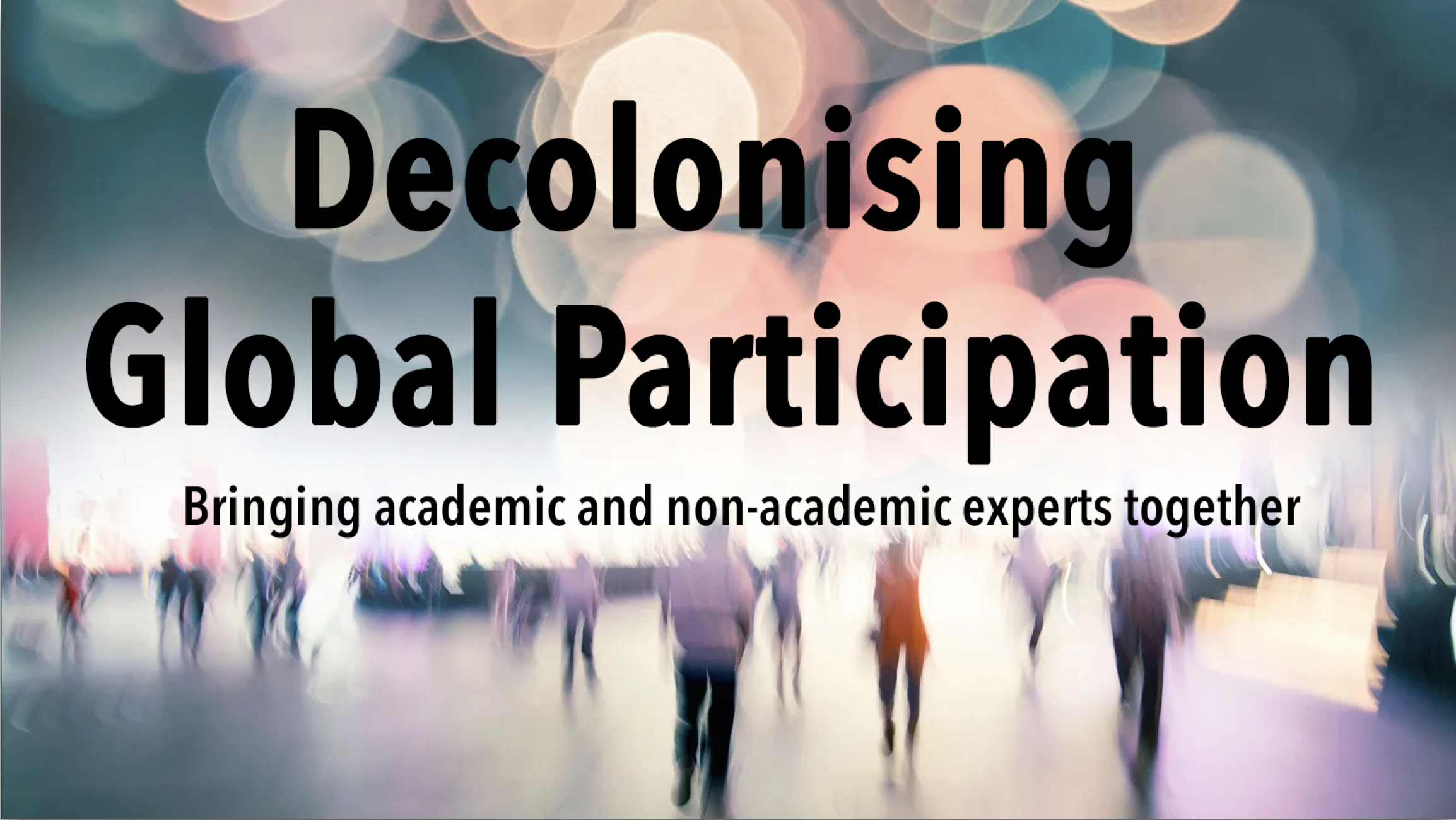We are delighted to host three parallel online forums on 3 November to bring together academic and non-academic experts from Africa, Europe, Latin America, North America and Europe-based Asian experts will share their view on how to promote participation globally. This study is funded by the Independent Social Research Foundation, and led by GSEJ Director Dr Joy Zhang, in collaboration with Prof. Peter Beresford (University of East Anglia), Dr. Bridget Penhale (University of East Anglia), Prof. Fiona Poland (University of East Anglia), Prof. Ewen Speed (University of Essex) and Prof. Nicola Yeates (Open University).
The project aims to develop a transdisciplinary and non-Western centric approach to comprehend political participation and to inform the increasingly diverse norms of participation. The gravity of such research is underlined by the growing importance of the role that emerging ‘civic epistemology’ plays in legitimising policy agendas and knowledge production. It is also highlighted by the novel forms of political participation, or enactments of diverse civic epistemology, aided by new technological advancements such as open-source intelligence, social media and the de-skilling of biomedical technologies. As evidenced by how localised incidents sparked transnational rights movement, such as #MeToo movement, School Strike for Climate and Black Lives Matter, the ways social changes are instigated and promoted have been transformed. Yet, it is also important to identify when meaningful political participation cannot happen and its implications for social justice and deliberative democracy. For example, previous studies have shown that the populist performance of (democratic) participation operates as an obstacle to more inclusive and diverse forms of participation. Data activism (also known as hacktivism) can also be a double-edged sword for deliberative democracy.
The research team will decolonise conventional political science frameworks of political participation with three initiatives that dovetail one another: 1) conducting a meta-survey and analysis of key global initiatives on political participation, 2) establishing an interdisciplinary global forum on political participation, and 3) co-producing new theoretical and methodological paradigms to inform practice and shed light on the latent impacts of these participatory initiatives.
In January, we’ll host another three forums with time scheduled in favour of Asian and Pacific regions. These forums will be invitation only and will observe the Chatham House Rule. This is to enable the contribution from practitioners working in precarious/contentious situations. However, if you’re interested in taking part, please drop us an email: GSEJ@kent.ac.uk

